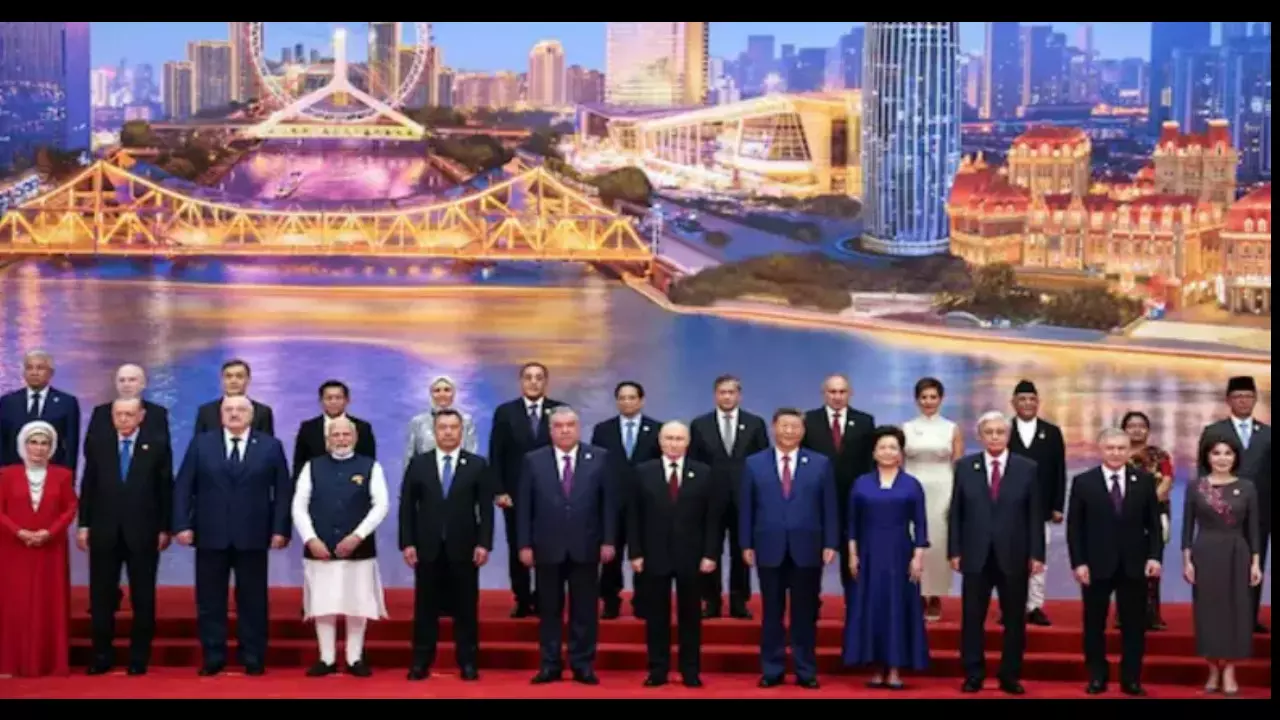Senior Congress leader P Chidambaram sharp criticism against India’s participation in the Shanghai Cooperation Organization’s latest declaration. The former finance minister called the SCO Tianjin Declaration completely inane and questioned India’s diplomatic strategy. His comments came after Pakistan signed the document alongside other member nations during recent multilateral talks.
Understanding the Controversial Declaration’s Content
The Tianjin Declaration emerged from the SCO’s recent ministerial meeting held in China’s major industrial city. Member states including Russia, China, and Central Asian nations endorsed various cooperation frameworks and regional security measures. The document addresses terrorism, trade relationships, and cultural exchanges among participating countries across the region.
Chidambaram expressed particular concern about certain clauses within the declaration that could potentially conflict with India’s national interests. The veteran politician argued that India’s foreign policy should prioritize bilateral relationships over multilateral commitments that dilute sovereignty. His statement emphasized the need for careful diplomatic analysis before endorsing international agreements.
The declaration covers multiple areas including energy cooperation, counter-terrorism efforts, and digital connectivity initiatives across member states. Critics argue that some provisions could limit India’s flexibility in dealing with regional security challenges independently.
Political Reactions Across Party Lines
Opposition leaders from various political parties have supported Chidambaram’s criticism of India’s participation in this multilateral framework. They argue that the current government lacks strategic vision when engaging with organizations where China holds significant influence. Adopted by Pak alongside India, the declaration creates potential diplomatic complications according to these critics.
BJP spokespersons defended India’s participation by highlighting the economic benefits of regional cooperation through established international forums. They emphasized that India maintains its strategic autonomy while engaging constructively with neighboring countries through multilateral platforms. The ruling party argues that selective participation helps advance India’s interests effectively.
Regional political analysts suggest that Chidambaram’s criticism reflects broader concerns about India’s foreign policy direction under current leadership. The debate highlights fundamental disagreements about how India should balance regional cooperation with national security priorities.
Examining India’s SCO Membership Strategy
India joined the Shanghai Cooperation Organization in 2017 alongside Pakistan, becoming full members after years of observer status. The organization originally focused on security cooperation but has expanded to include economic and cultural collaboration initiatives. Your understanding of India’s membership benefits requires examining both opportunities and potential diplomatic constraints.
The SCO provides India with direct access to Central Asian energy resources and markets through established cooperation frameworks. Trade relationships with Russia and China also receive institutional support through various SCO mechanisms and bilateral agreements. However, critics worry about potential limitations on India’s foreign policy flexibility within this multilateral structure.
Pakistan’s simultaneous membership creates unique challenges for India’s diplomatic engagement within the organization’s various working groups. Both countries must navigate their bilateral tensions while participating in collective decision-making processes on regional issues.
Key Areas of Concern Highlighted by Critics
Chidambaram and other opposition leaders have identified several specific issues within the SCO Tianjin Declaration that warrant closer examination:
- Counter-terrorism cooperation mechanisms that could affect India’s domestic security operations
- Economic integration proposals that might favor Chinese Belt and Road Initiative projects
- Cultural exchange programs that could dilute India’s soft power projection efforts
- Border management clauses that might complicate India’s bilateral dispute resolution processes
These concerns reflect broader worries about multilateral commitments potentially constraining India’s strategic autonomy in regional affairs. Critics argue that India should prioritize bilateral relationships over multilateral forums where opposing interests might prevail.
The opposition emphasizes that India’s foreign policy should focus on partnerships that clearly advance national interests without creating diplomatic complications. They suggest that SCO membership might not provide sufficient benefits to justify potential constraints on policy flexibility.
Regional Implications of the Declaration
The SCO Tianjin Declaration occurs amid shifting geopolitical dynamics across South and Central Asia following recent global developments. China’s growing influence within the organization raises questions about whether smaller member states can maintain their strategic independence. Your analysis of regional power balances requires understanding these evolving multilateral relationships.
Russia’s ongoing international challenges have altered traditional power structures within the SCO framework significantly over recent months. This situation creates both opportunities and risks for India’s engagement with other member states through established cooperation mechanisms.
Central Asian nations increasingly seek diverse partnerships to balance their relationships with major regional powers including China and Russia. India’s engagement through SCO provides alternative cooperation frameworks that could benefit all participating countries through enhanced connectivity.
Future of India’s SCO Engagement
Political observers suggest that Chidambaram’s criticism reflects growing domestic debate about India’s multilateral diplomacy approach under current leadership. The Congress party’s position emphasizes selective engagement that prioritizes clear national benefits over broad regional cooperation initiatives.
The government’s response to these criticisms will likely influence public perception of India’s foreign policy effectiveness in managing complex regional relationships. Diplomatic circles are watching closely to see how India balances its SCO commitments with bilateral priorities.
As regional dynamics continue evolving, India faces important decisions about its level of engagement within various multilateral frameworks including the SCO. The balance between cooperation and strategic autonomy remains a central challenge for Indian diplomacy.
The debate sparked by Chidambaram’s comments highlights fundamental questions about how democratic nations should approach multilateral organizations where authoritarian regimes hold significant influence. This discussion will likely continue shaping India’s foreign policy discourse in coming months.








Be First to Comment